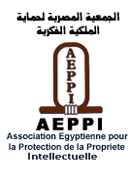|
|
|
|
|
First Session
The Economic
Value of Intellectual Property Rights
|
Moderator: Mr. Sherif Saadallah, Executive Director, IP and Economic
Development, WIPO
Reporter: Ahmed Abou Ali, Partner, Hassouna & Abou Ali Law Firm, Secretary
General AEPPI, Cairo
1- Intellectual property Rights: Trade and Investment
Speaker: Dr. Michael P. Ryan, Associate Professor, Georgetown University’s
McDonough School of Business, and Project Manager, International Intellectual
Property Institute (IIPI), Washington D.C.
Professor Ryan spoke under the title “Knowledge Dependency or Knowledge
Development” about the role of IPR in promoting technology transfer and
managerial know-how flows by encouraging multinational enterprises trade and
foreign direct investment. Professor Ryan argued based on studies done by UNCTAD
and World Bank during the 1980s and 1990s, that weak IPRs discourage the kind of
technology-intensive, organizational know-how diffusing activities of business
enterprises based in the North which are most desired by the up-and-coming
business enterprises in the developing and transitioning countries in the South
and East. He pointed out that countries of highest protection of IPR get higher
level of trade, investments and licensed technologies. He gave the example of
Jordan as a country with a vision for an IPR country; and as a result it is
becoming an attraction center for biotechnology and medical industries. He
concluded that effective IPRs are vital tools of knowledge-based economic
development.
2- Intellectual Property as a Business Tool
Speaker: Dr. Prabuddha Ganguli, Advisor, Vision-IPR, Mumbai, India
Dr. Ganguli explored value creation, wealth generation and wealth realization as
reasons for which people innovate. He then turned to the notion of knowledge and
knowledge canopy and divided it into several categories. Dr. Ganguli described
the government’s role as the creation of enabling environment in terms of laws
and infrastructure for progressive business and ensuring that reasonable
requirement of the public is met in terms of accessibility and affordability. He
further explored the trends in IP innovation and quoted a 2003 study by Mairesse
and Mohnen that concluded that firms in a wide range of industry sectors between
1990 and 2001 industry financed R&D in the OECD region rose 51% in real terms
from USD 244 billion to 368 billion, or from 1.31% to 1.48% of GDP. He also
pointed out that the growing technological complexity of products and processes,
increased technological opportunities created by recent scientific advances are
forcing firms to work in greater collaboration. Dr. Ganguli concluded that there
is need for formulating policies that encourage good licensing practices in the
public and private sectors clarify and reinforce research exemptions and explore
alternative access arrangements and create mechanisms for sharing bundles of IP
operating patent tools among others.
3- Branding in a Business Strategy
Speaker: Mr. Simon Anholt, Author and Government Advisor
Mr. Anholt, who is regarded as a leading specialist in creating brand strategies
for countries, cities and regions, discussed the concept of a brand, how it is
created, what is its value and its relation to IPR. He said that there are two
sets of reasons for people to buy goods and service. One is whether it works
better and its price.
The second, which is in his view the real reason, is
consumer preference and how the good or service is important to the consumer.
Mr. Anholt distinguished branding by stating that it is not advertising,
promotion or public relation; that it could be a style, logo or trademark which
is unique and that it is sophisticated in the sense that it describes the
consumer and defines things about him/her. In summary, he says branding is a
self expression and that is the actual value of a brand. This value is the
difference between fixed assets and market value.
|
|
|
|
|
|
Second Session
National Strategies and Policies for Intellectual
Property
Leading to Growth and Development
|
Moderator: Dr. Negad Shaarawi, Chairman,
Egyptian Drugstores Co., Board Member, AEPPI, Cairo
Reporter: Mr. Karim El Helaly, Associate,
Zaki Hashem & Partners
1- Keynote Speaker: His Excellency Dr. Amr Salama,
Minister for Higher Education and Scientific
Research, Government of Egypt The keynote speech in
this session was delivered by the representative of
the Minister for Higher Education and Scientific
Research Mr. Moustafa El-Seesy. The subject of this
presentation was the technological developments and
the challenges it presents to undeveloped countries
like Egypt. Mr. El-Seesy spoke about the development
of organizations handling IPR in order to support
existing industries and its ability to compete.
Also, the speaker focused on the role of the Agency
for the Development of Innovation and Inventions,
business incubators and marketing contracts as tools
for economic development.
2- National Innovation Policies
Speaker: Dr. Michael P. Ryan, Associate
Professor, Georgetown University’s McDonough School
of Business, and Project Manager, International
Intellectual Property Institute (IIPI), Washington
D.C.
Dr. Ryan addressed issues related to national
innovation policies, where the speaker shed the
light on technological improvement and its important
role in breeding economic growth giving examples
like the UK Royal scientific societies. Also,
pointing out that sharing ideas and the cross
fertilization thereof e.g. controlling energy the
integration of technology into economic life.
Important aspects as such are institutional
innovations, elaborating on the German model and the
research universities whereby acquisition of new
technology was integrated into study and education.
Also, he shed the light on the Korean model which
invested in basic education and research
institutions with a commitment to R&D and the gap
between Korea and Egypt. Finally, the speaker
focused on the US model as the best model for such
research institutions which now evolved to what is
commonly known as University licensing.
3- Strategies for Protecting Intellectual Property
Rights Related to Inventions and Research Results
Speaker: Dr. Prabuddha Ganguli, Advisor, Vision-IPR,
Mumbai, India
Dr. Prabuddha Ganguli addressed the importance of
managing intellectual property rights, and
encouraging developing countries to move from
defensive practice (which focus on filing) to
offensive practices (litigation and management)
giving an example of Barr Laboratories strategy
which has earned $200 million years by challenging
patents it considers breakable, also Barr case
against Lilly’s Prozac patent which was settled in
January 1999, when Lilly paid Barr $4 million to go
away. The speaker shed the light on the importance
of computer patenting and business methods an issue
that is not present under the Egyptian IP regime
giving a good example such as Dell patents
concerning their built-to-order competitive
advantage.
4- The Egyptian Pharmaceutical Industry – Future
Options, Delivering the Future
Speaker: Dr. Magdi Hassan, Chairman of the
Egyptian Pharmaceutical Holding Company
The Fourth presentation was addressing the Egyptian
pharmaceutical industry; the first speaker Mr. Magdy
Hassan Chairman of the Egyptian Pharmaceutical
Holding Company, who’ve shed the light on the
development in the Egyptian pharmaceutical sector
and the important contribution of this sector to the
role of innovation in Egypt. Also, he tackled
important issues related to the security of
pharmaceutical products availed by the local
industry; improvement of plants; reasonable prices,
the local equivalent for foreign products. Also, he
stressed on the issue of training employees and
preparing them for the innovative world.
Speaker: Dr. Ahmed El-Hakim, Director,
External Affairs and Policy, Pfizer, Middle East
The Fifth presentation was made by Dr. Ahmed
El-Hakim Director, External Affairs and Policy,
Pfizer, Middle East.; where he addressed key issues
in the pharmaceutical industries such as research
and development, data protection, and the incentive
to innovate. The speaker shed the light on the
important role of R&D in the pharmaceutical industry
and the reliance on inventions to improve and avail
the best pharmaceutical products in terms of
efficiency and safety. Also, the speaker shed the
light on the important role of the Ministry of
Health in availing the data protection to innovative
products that provides the incentive for further
development of better products.
|
|
Fourth Session
Intellectual Property Rights and the Public Policy
Domain
|
Moderator: Mr. Ahmed Abou Ali, Partner,
Hassouna & Abou Ali Law Firm Secretary General AEPPI,
Cairo
Reporter: Mr. Hazem Fathi, Senior Associate,
Hassouna & Abou Ali Law Firm
1- Keynote Speaker: His Excellency Dr. Hassan
Khedr,
Minister for Internal Trade and Supply, Government
of Egypt, Cairo The keynote speech was given on
behalf of the Minister for Internal Trade and
Supply, Government of Egypt by Ambassador Adel Saleh,
Advisor to the Minister for Foreign Relations. The
speech evolved around the role of IPR in the
economic development and attracting foreign direct
investment. He stressed the fact that IPR contribute
to the added value and increase of employment
levels. He also spoke about the importance of
trademark protection and the role of the Ministry in
promoting such protection.
2 - Socio Economic Implications of the Evolving
IPR Paradigms.
Speaker: Dr. Prabuddha Ganguli, Advisor,
Vision-IPR, Mumbai, India
Dr. Prabuddha Ganguli started by discussing the
correct time to introduce and enforce IPR laws and
the options available to the IPR holder. He also
addressed national policy issues (access to basic
research, review of patenting system and process,
enforcement mechanisms and national taxation system)
in patenting with a highlight of key features in
patenting biotechnology. Dr. Ganguli later addressed
key considerations in IP licensing, rationale and
motivation for IP protection and what the
institutional IP policy should lead to. Dr. Ganguli
argues that IPR paradigm is shifting from protection
of private rights to community rights.
3 - Contribution of Competition Law in Economic
Growth
Speaker: Mr. Samir Hamza, Helmy & Hamza Law
Firm (Baker & Mckenzie), VP, AEPPI, Cairo
Mr. Samir Hamza presented Egypt’s newly adopted
Competition and Antitrust Law, Law No. 3 of 2005 and
the executive regulations to come into force during
May 2005. Mr. Hamza started by distinguishing
between free competition laws and consumer
protection laws. He then rules out any conflict
between this new law and Law No. 82 of 2002
concerning Protection of Intellectual Property as
both serve jointly to enhance economic progress and
the public interest. On Law 3 of 2005, Mr. Hamza
said that the new law opted to utilize the “Per se”
rule relying on a 25% percentage of the market as an
indication of dominant position. He elaborated that
the law does not have an extra territoriality
concept, although it can apply to actions committed
outside Egypt if it results in anti competition
actions or restrict competition or damage
competition in Egypt. When addressing the penal
section of the law, Mr. Hamza stated that the law
does not adopt imprisonment as a punishment but
applies financial fines to crimes committed in
violation of the law.
4 - Policy Options for Country Branding in
Developing Countries
Speaker: Mr. Simon Anholt, Author and
Government Advisor
Mr. Anholt continued the discussion on branding by
asking the question “what is needed to create a
branding program?”. He stated that countries will
compete daily with neighbors or blocks and regions
for tourism, investments and export sales at the
time there is limited business that can go around.
He claims that countries that start with unknown or
poor reputation will be marginalized. He further
argues that if reputation is clear and positive,
products made in that country will carry an extra
advantage
|
|
|
|
|
 |











